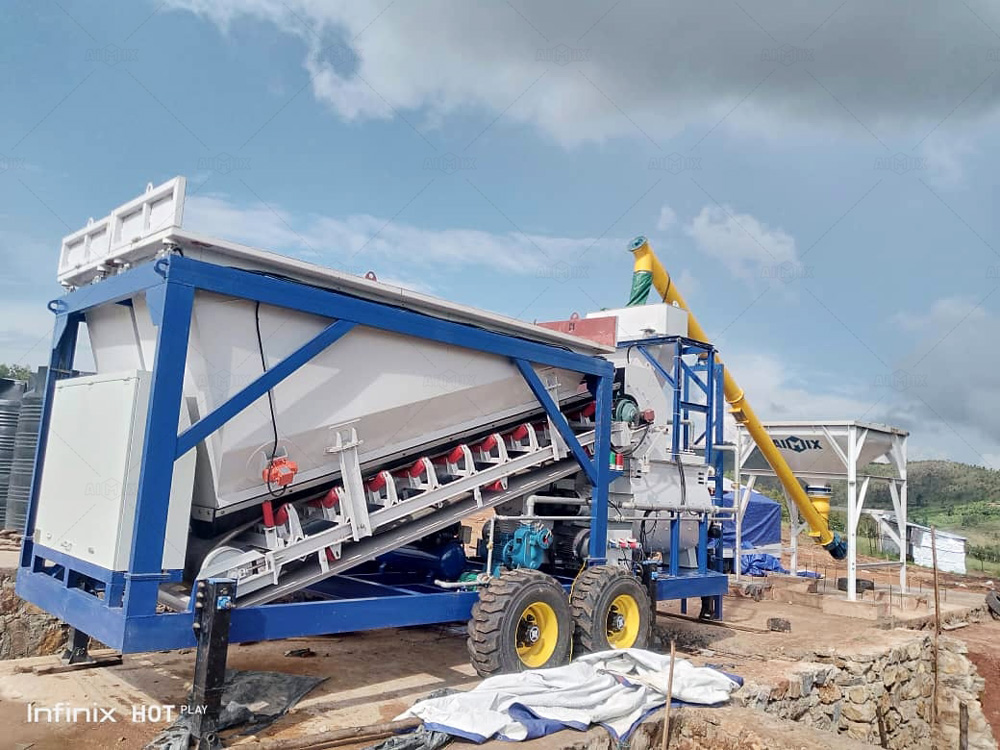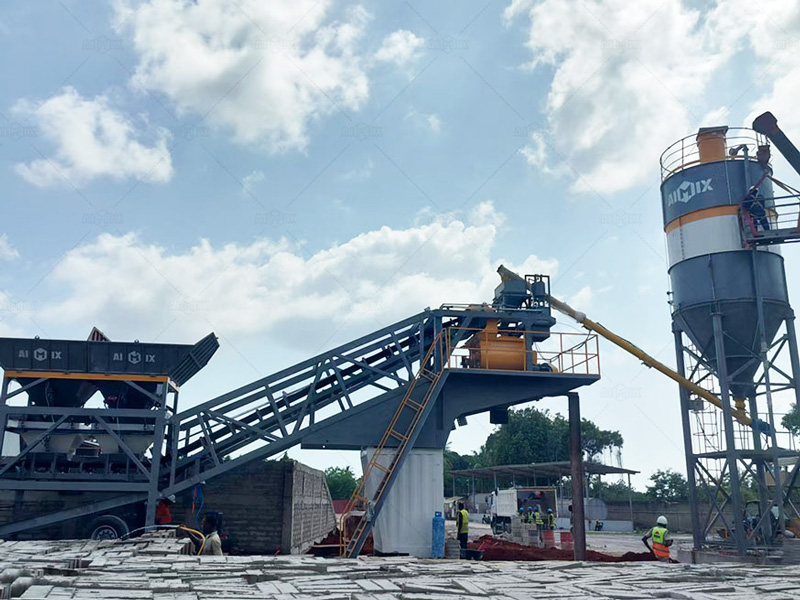In the dynamic and demanding world of modern construction, the batching plant portable stands as a beacon of flexibility and efficiency. Yet, its true potential is unlocked not by its mobility alone, but by the silent, unwavering precision of its core metering systems. The accuracy of the weighing systems for cement, aggregates, water, and admixtures is the unshakeable foundation upon which everything else is built. It is the critical differentiator between a batch of concrete that merely meets a specification and one that embodies reliability, durability, and cost-effectiveness. When these systems are compromised, even slightly, the consequences ripple through the entire project, affecting structural integrity, project economics, and professional reputation. A thorough analysis reveals that investing in and maintaining precise weighing technology is not an operational expense, but a strategic imperative for any forward-thinking concrete producer.

The Foundation of Quality: More Than Just a Number on a Scale
At its core, a concrete mix design is a precise recipe where every component plays a specific role in the complex chemical and physical reaction of hydration. The weighing system is the guarantor of this recipe’s fidelity. An over-pour of water, for instance, directly increases the water-cement ratio, which is the primary factor controlling the final compressive strength and permeability of the cured concrete. Even a minor, consistent error of 2% in cement weighing can lead to a 5-8% reduction in design strength, creating a significant safety margin deficit. Accurate weighing is the first and most crucial line of defense against such deviations. It is the mechanism that ensures every single batch leaving the batching plant mobile consistently conforms to the project’s engineering specifications, providing peace of mind and mitigating the profound risks associated with non-compliant materials.
The Anatomy of a Reliable Batching Scale
Understanding what constitutes a reliable system is key. The heart of any modern batching scale is the load cell, a transducer that converts a mechanical force (weight) into an electrical signal. High-quality, hermetically sealed load cells are essential to resist moisture and dust ingress. These cells are strategically placed under aggregate bins, cement silos, and water tanks, forming a network of precision measurement points. However, the cells themselves are vulnerable to environmental interference. This is where the plant’s design becomes critical. Effective systems incorporate structural dampeners to isolate the scales from the vibrations of conveyors and mixers. They also utilize temperature compensation within the load cells and instrumentation to ensure readings remain stable despite the thermal fluctuations of a working day. Finally, this data is processed by a central instrument, which aggregates the signals, provides a clear readout for the operator, and integrates with the plant’s control computer to automate the batching process.

The Cascading Costs of Inaccurate Weighing
The financial implications of inaccurate batching are often underestimated and extend far beyond the cost of a single batch. The most direct cost is material waste. Consistently over-batching cement to create a safety margin is a costly and inefficient practice that erodes profit margins with every cycle. Conversely, under-batching can lead to catastrophic failures, resulting in rejection of loads, costly repairs, and potential legal liabilities. The long-term durability of the concrete is also severely compromised. An inaccurate water-cement ratio leads to increased permeability, allowing water and deleterious chemicals to penetrate the concrete, which accelerates corrosion of the reinforcing steel and leads to premature cracking and spalling. This degradation not only incurs massive rehabilitation costs but also tarnishes the reputation of the concrete supplier and the contractor, potentially jeopardizing future project opportunities.
A Proactive Regimen for Sustained Accuracy
Precision is not a one-time event but a continuous commitment. A proactive maintenance and verification regimen is non-negotiable. This begins with a formal schedule of calibration using certified test weights. This should be performed by qualified technicians at regular intervals, often mandated by local regulations or quality assurance programs. Beyond formal calibration, daily verification checks led by the concrete ready mix plant operator are vital. This can involve running a “dummy” batch where the weights of discharged materials are checked on a separate, certified scale. Furthermore, operators should be trained to monitor batching reports for any anomalous data or drifting trends, which can indicate a load cell is beginning to fail or has been damaged. This culture of vigilance ensures that small issues are identified and rectified long before they can affect production quality.
Leveraging Precision for Competitive Advantage
Ultimately, a highly accurate weighing system is a powerful tool for gaining a competitive edge. The reliable data it generates allows for the optimization of mix designs, enabling producers to confidently achieve target strengths with leaner, more cost-effective formulations without sacrificing performance. This precision also becomes a powerful marketing asset. Providing clients with certified batch data and demonstrating a commitment to unwavering quality builds immense trust and transparency. In an industry where reliability is paramount, the ability to guarantee consistency batch-after-batch positions a company as a leader and a trusted partner. Investing in modern, precise weighing technology is an investment in the mobile wet concrete batching plant‘s future, ensuring it remains a reliable, profitable, and respected asset for years to come.